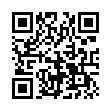Copy Before Submitting Web Forms
Filling in Web forms (like the one used to submit this tip) can be a bit of a gamble - you put in your pearls of wisdom, perhaps only to lose them all if the Web page flakes out or the browser crashes. Instead of losing all your text, "save" it by pressing Command-A to select all and then Command-C to copy the selected text to the clipboard. Do this periodically as you type and before you click Submit, and you may "save" yourself from a lot of frustration. It takes just a second to do, and the first time you need to rely on it to paste back in lost text, you'll feel smart.
Submitted by
Larry Leveen
Recent TidBITS Talk Discussions
- Alternatives to MobileMe for syncing calendars between iPad/Mac (1 message)
- Free anti-virus for the Mac (20 messages)
- iTunes 10 syncing iPod Touch 4.1 (2 messages)
- Thoughts about Ping (16 messages)
Related Articles
- AirPort 3.1 Applies 802.11g Spec (23 Jun 03)
- AirPort Extreme: In the Key of G (20 Jan 03)
Published in TidBITS 684.
Subscribe to our weekly email edition.
- QuarkXPress 6 for Mac OS X Ships
- QuicKeys X2 Beefs Up Macros
- NoteTaker 1.5: Even More Noteworthy
- Security Update 2003-06-09 2.0
- Microsoft Releases IE 5.2.3 for Mac OS X
- Internet Explorer for Mac in Maintenance Mode
- Apple Ships Final Cut Pro 4
- Replacing a Power Mac G4 Power Supply
- Internet-Guided Offline Recreation (IGOR): Database Rituals
- Hot Topics in TidBITS Talk/16-Jun-03
802.11g (AirPort Extreme) Ratified
Apple took a risk when it introduced AirPort Extreme in January of 2003 because the IEEE 802.11g specification that AirPort Extreme relies on hadn't yet been approved. 802.11g improves on 802.11b, which Apple called AirPort, by increasing the raw speed to 54 Mbps while maintaining backward compatibility with 802.11b devices (see "AirPort Extreme: In the Key of G" in TidBITS-663). Apple's gamble paid off 12-Jun-03 with the ratification of 802.11g by the IEEE, the engineering standards group that developed both 802.11g and 802.11g.
<http://www.apple.com/airport/>
<http://www.ieee.org/hpnews_802.11g>
<http://db.tidbits.com/article/07047>
Greg "Joz" Joswiak, Apple's vice president of hardware product marketing, said, "There have been no significant changes to the specification," since January. However, Apple has had to make tweaks along the way and Joz said there would be an update before the end of June that brings AirPort Extreme into full compliance and compatibility with the final 802.11g spec.
Last month, reports circulated that the IEEE had reduced 802.11g's speed from 54 Mbps to less than 25 Mbps, panicking some users who had already invested in 802.11g hardware. Fortunately, the IEEE didn't change the speed: they were merely clarifying the throughput of an 802.11g-based network in real world situations (similarly, 802.11b never achieves 11 Mbps; roughly half that is more common in real world situations). Networks always have overhead for processing packets and managing traffic, and 802.11g's overhead is quite large compared to conventional Ethernet.
<http://www.computerworld.com/mobiletopics/ mobile/story/0,10801,81450,00.html? nas=PM-81450>
Interestingly, Apple's AirPort Extreme chipset supplier Broadcom and three other major wireless chipset developers - Agere, Intersil and Texas Instruments - are all working on solving the throughput problem. Broadcom said that its Xpress technology will increase the speed on 802.11g-only networks that use its technology by 27 percent and on mixed 802.11b/g networks by nearly 75 percent simply by more intelligently packaging packets. Even if only one device transmitting on the network uses Xpress, you can still see speed improvements. Their "packet bursting" technology works fine with older devices, and Broadcom is part of an effort in the industry to roll out a compatible version of this notion soon. (Technically, Xpress uses a subset of a draft version of IEEE 802.11e, a specification that should be finished in the next year for improving throughput and streaming media capabilities.) Broadcom also said this capability is already latent in the chips they've delivered to equipment makers like Apple, and it's up to each equipment maker to decide whether or not to turn the feature on. Given the timing on Broadcom's announcement, it's possible that Apple will throw in this Xpress feature later this month with the AirPort Extreme firmware upgrade.
<http://www.80211-planet.com/news/article.php/ 2222031>
The next step for 802.11g is inclusion in the Wi-Fi certification standard that currently ensures that all 802.11b (and 802.11a) devices are compatible with one another, no matter what company has developed the underlying chipset. The Wi-Fi Alliance, a trade group that manages the Wi-Fi certification process and allows compatible products to display the Wi-Fi seal, has said it plans to start testing and certifying products this month.
 READERS LIKE YOU! Support TidBITS with a contribution today!
READERS LIKE YOU! Support TidBITS with a contribution today!<http://www.tidbits.com/about/support/contributors.html>
Special thanks this week to John & Nichola Collins, Chris Williams,
John K. Lilley, and Honeymoons By Sunset for their generous support!

